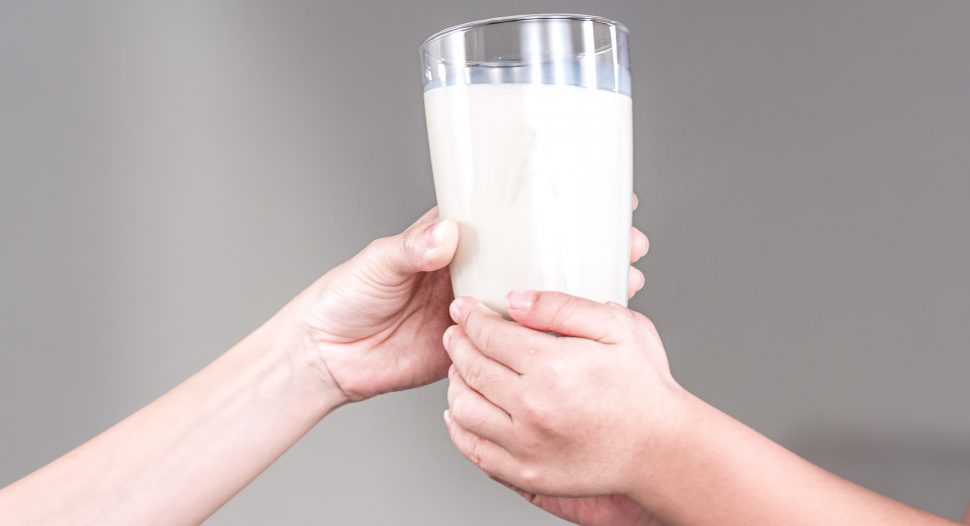Was it only the success of the milk lobby that made us believe for decades that it’s good for us? Or is it true that the human body really cannot digest cow’s milk properly?
The “milk question” is one of our days’ biggest dietetic dilemmas, even amongst doctors and dieticians, there is no coincidence: is it healthy or is it harmful to your body?
For many people, drinking milk belongs to the normal daily routine children drink it for breakfast, chocolate milk for bedtime, we put it in our coffee, and there’s a long list of dairy products, from the delicious yogurts to our favorite cheeses what we rather wouldn’t miss out on. Milk has always got a green light in any dietjust until recent times. Newest studies suggest cutting down milk consumption, as it has negative effects on our health. At the same time, other researches still prove its benefits.
Is milk really good for you?
Anyway, something has started as Canada being the largest milk consuming country issued a new and completely rethought food guide that cuts off dairy consumption dramatically.
So, what is the truth about milk?
Let’s see both its bright and dark side, to help us decide.
Milk is a whole food as it contains 18 out of the 22 essential nutrients. It provides lots of calcium, magnesium, potassium, zinc, iron, Vitamin E and Vitamin K, amongst others, and is a great source of protein. Milk has been legendary of its benefits on bones.
Several researches proved that milk has an effect in preventing type 2 diabetes. The explanation is that its protein helps to balance blood sugar.
Furthermore, milk is said to increase the level of high-density lipoprotein (HDL), known as good cholesterol, and even contributes in preventing stroke and heart disease.
Milk has many benefits to our health
Well, this all sounds really cogent. So what is the problem with it?
A study found connection between teenagers’ dairy consumption and having acne. and it might refer to adult acne, too. Further studies pointed out that especially the skim or low-fat milk can cause such symptoms, the whole milk or cheese will not. Other skin diseases like eczema and rosacea may also get worsened by drinking milk, researchers found.
Interestingly, checking the diet of pregnant and breastfeeding women, researchers found that adding milk and a probiotic to their meal will help to reduce the risk of food-related allergic reactions like eczema of their child. At the same time, 5% of the children suffer from symptom caused by milk, from the milk allergy to colic and diarrhea, even breath difficulties. They usually grow out their milk allergy. And at the same time, adults can develop one.
Dairy can be the cause of many health issues
A surprising study found that having 3 or more glasses of milk a day might increase women’s bone fracture risks. Another showed that elderly people’s risk of bone fractures and osteoporosis are the highest for patients who consume the most dairy products. Researchers explain the reason might be milk sugar called lactose. wait a second, we thought it’s good for our bones, no?
You probably wouldn’t believe at first sight but according to a 2015 study 75% of the world’s population has an issue with cow milk digestion, and this might be because of lactose intolerance. (Cow milk has higher lactose content than any other animal’s.) Many of the patients don’t even know about it, as small daily dairy doses can be safely added to their diet.
And last but not least: Dairy cows get tons of growth hormones and antibiotics. These may not only cause milk allergy but are linked to increasing the risk of certain cancers. It is quite disconcerting that a breastfeeding mother is restricted in taking medication, but there’s no concern about what we get from the cow’s milkmore research is needed, but this sounds definitely weird and worrisome.
So, besides its health benefits, would cow milk be really something that our body got used to over the thousands of years?
There is no doubt milk is rich in nutrients and may be a good asset in a healthy diet, especially for children. Although we know now that in a number of cases moderate consumption or even full elimination is reasonable.
Milk is naturally packed with essential nutrients in a convenient and accessible form. Drinking milk is particularly important for children and may help you and your child maintain good health.
For those who want or need to cut off milk from their meal, plant-based milk alternatives like rice, almond, coconut, or cashew can be also a good alternative for a balanced diet.
As a takeaway, it might be a good starting point to try to get milk of grass-fed or pastured cows, or find organic dairy sources. They are proven to not only contain higher level of vitamins and more beneficial fats but also are clean of drugs. This one change itself will mean a lot for your health.









